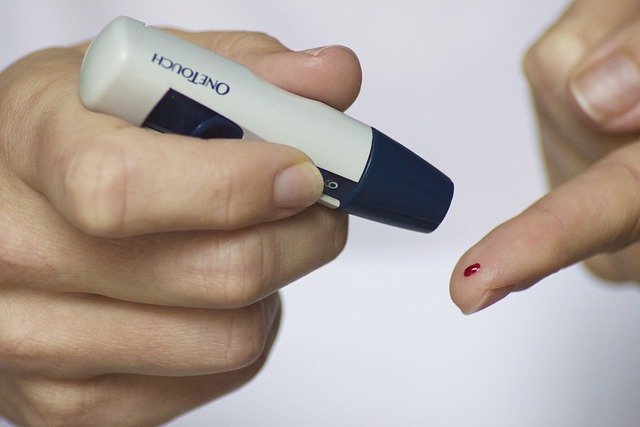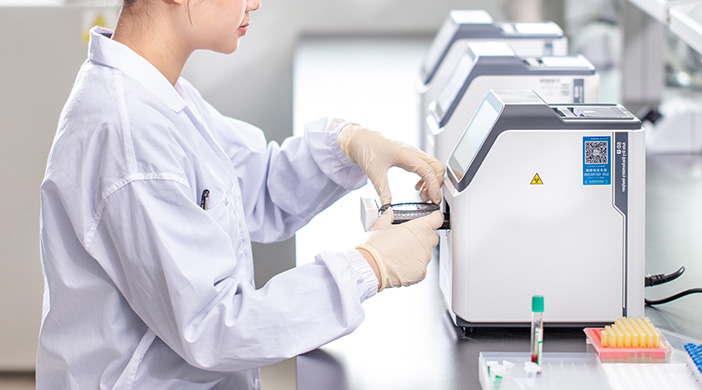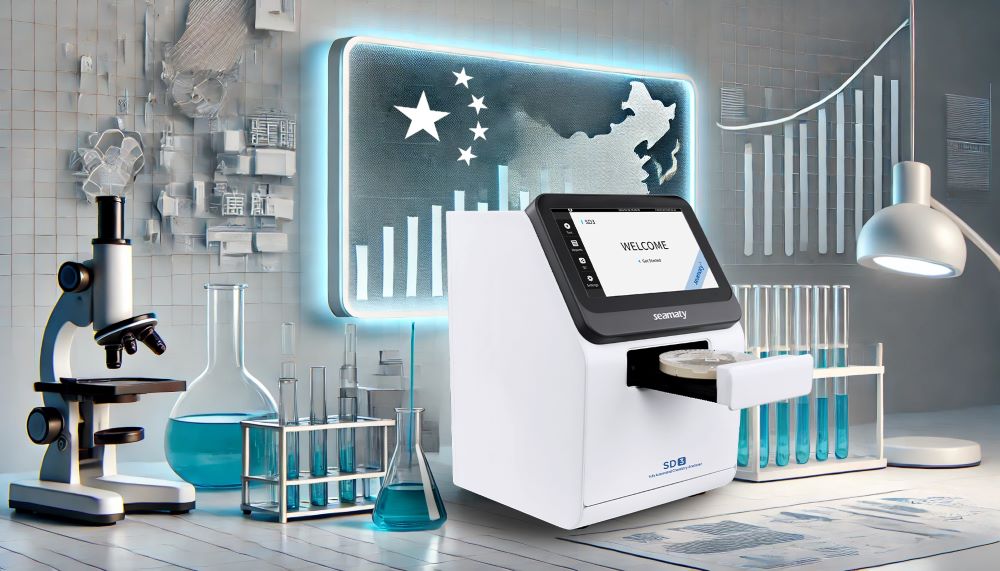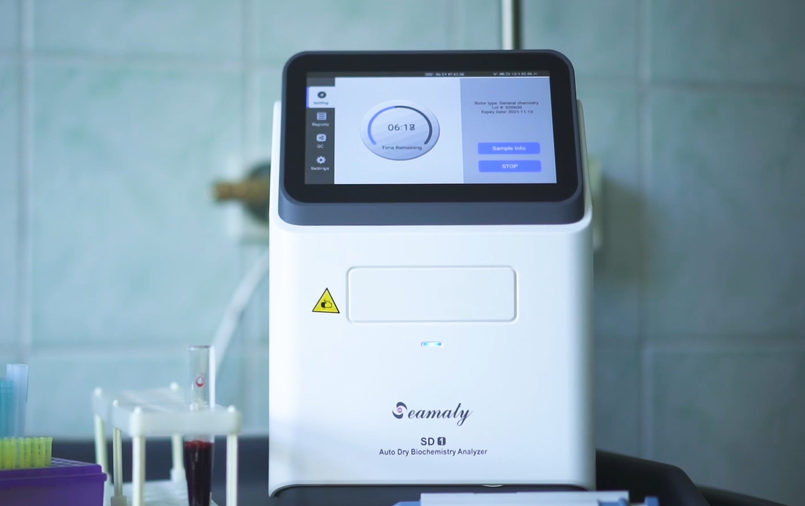A diabetic patient reported that his recent fasting blood glucose was 6.4 mmol/L for venous blood and 8.1 mmol/L for terminal blood (measured using a home blood glucose meter). Although the tests were done at the same time, the two results differed greatly. Which is more accurate, the blood glucose meter or the
biochemistry analyzer?
In fact, the blood glucose measured by the blood glucose meter is the blood glucose from capillary blood (including red blood cells and serum). In contrast, the blood drawn from the hospital is blood glucose from serum or plasma in the venous blood. This is because the blood or plasma has removed the red blood cells, which contain less sugar. Therefore, the serum blood glucose value measured in the hospital during fasting is usually 10% to 15% higher than the blood glucose value measured by capillary blood.

After eating, as sugar is absorbed through the gastrointestinal tract, it first enters the arteries, then goes through the capillaries into the tissues for metabolism before entering the veins. Therefore, the blood glucose value of capillary blood measured by blood glucose meter after eating is 1~3mmol/L higher than the blood glucose value of venous blood measured at the hospital at the same time. therefore, it is accurate to monitor the blood glucose value of venous blood with biochemical analyzer.
It is inevitable that there is some difference between fingertip blood glucose and venous blood glucose due to the different testing methods. You can make several comparisons. As long as the difference between the glucose meter test result and the biochemistry analyzer IV blood glucose value is relatively stable, then there is no big problem. But what you should know is: fingertip glucose cannot be used to diagnose diabetes. However, because it is easy and quick, it can be used for usual blood glucose monitoring.

Summary
Why do finger blood and venous blood glucose tests show different results? The difference between finger blood and venous blood testing blood glucose may have several reasons.
-
1. The rapid blood glucose meter measures the blood glucose value of peripheral blood, which is a mixture of arterial and venous blood. Theoretically, its blood glucose level is slightly higher than the venous blood glucose. Especially the difference of postprandial blood glucose is larger. And it is difficult to use biochemical analyzer to test immediately after the blood is drawn from the vein. And the longer the blood sample is placed, the lower the blood glucose will be due to glycolysis.
-
2. The advantage of fast blood glucose meter is that it is easy and fast, but the result is inevitably slightly wrong.
-
3. Because there may be differences in the model of biochemical machine, reagents selected and other conditions of instantaneous reaction, even the same venous blood may not have the same value when tested by two biochemical analyzers.
Fasting blood glucose, the hospital biochemistry analyzer is not necessarily more accurate!
Although most of the time, the results of biochemistry analyzers are more accurate than those of blood glucose analyzers. However, not all cases of biochemical analyzers are more accurate than blood glucose analyzers, for example, when measuring blood glucose in fasting, it is easy to be affected by the following factors.
-
1. The time of blood draw is too late. After 8:00 am, even if you don't eat, the glucagon in your body will increase. When glucagon increases, blood glucose will definitely be high.
-
2. Bad mood caused by poor sleep, traffic jam, etc., will also lead to increased secretion of glucagon.
-
3. Exercise on an empty stomach. Because exercising on an empty stomach will lower blood sugar.
-
4. Dinner is not the same as usual. Eating dinner too late, or adding a meal before bedtime, making the fasting time less than 8 hours. Or consciously eat less the night before the blood draw.
-
5. The body is not the same as usual. Because when over fatigue, menstruation, trauma or cold or fever, the secretion of glucagon in the body increases, and it also does not reflect the usual blood sugar situation.
-
6. The medicine is different from usual. For example, **floxacin anti-inflammatory drugs may cause hypoglycemia, especially gatifloxacin, which may cause serious hypoglycemia when combined with glucose-lowering drugs.
How to measure fasting blood sugar? The previous day's dinner should be maintained as usual and should not be changed easily. Fasting blood sugar should be measured before eight o'clock in the morning, 8~12 hours from the previous day's dinner. Ensure sufficient sleep and a calm mind. Do not exercise on an empty stomach, etc.




